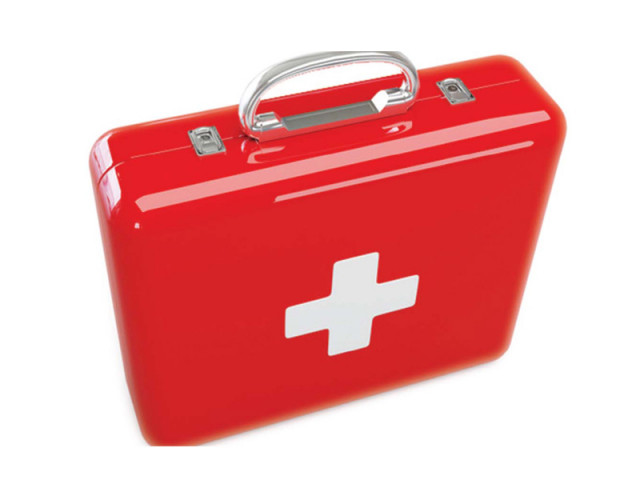Pakistan: A gold mine for health data
Country needs to compile information to help combat diseases, make money.

In a business context, it is important that relevant information on the performance of a product is gathered, stored and processed in order to analyse it in an objective way to identify problems and remedy them for further development of the product.
Large Western corporations that allocate huge budgets to gather and analyse market intelligence, therefore, take market research, very seriously. Nestle, for example, spends $2 billion annually on R&D, and it is not a surprise that it has started producing probiotics that protects the skin from the sun – a distinct move from manufacturing just nutritionally enriched baby foods.
While a number of multilateral organisations and foreign government agencies are throwing a lot of money to gather information on different social, political and economic behaviours in Pakistan, local businesses whether small, medium or large have virtually no R&D programmes. For example, a Western agency carried out a national survey to find out if any changes in religious attitude and behaviour were observed amongst the respondents, after they had performed Hajj. Similarly, another foreign government agency recently sponsored a national survey to find out the effective demand for Islamic banking in Pakistan.
Apart from these foreign sponsored cases of information gathering and research work, there is no culture in Pakistan of gathering authentic information and storing it for useful analysis for business and planning. Health data is a perfect example of information loss. Pakistan is a gold mine when it comes to data on health-related issues. It is not a matter of pride but Pakistan is one of the countries where information on all kind of diseases is abundant, as Pakistan is one of the most disease-ridden nations on the planet. A research programme based on the information from Pakistan can prove to be extremely helpful for identifying health problems and their possible medical solutions.
Hospitals in Pakistan, however, do not keep systematic records of their patients and their medical history. Consequently, there is huge data loss on a daily basis. If the data were kept and utilised in scientific research, it could help the humanity immensely in terms of identification of causes of the human illnesses. As every country and race have their own uniqueness, it cannot be argued that data from other parts of the world could be used to understand health problems in Pakistan.
One argument that many people in Pakistan furnish is that there are no immediate commercial benefits of collecting data in the country. This, however, is only a myth and is based on a lack of understanding of the market for information. There are numerous multilateral organisations and international research centres, which have huge budgets and pay for authentic data. Furthermore, hospitals – especially those in the private sector – can benefit vastly if they keep systematic records of their registered patients. A better-informed medical consultant can provide better-quality advice and, hence, must be able to charge higher for the quality differential.
The government can play a role here by providing incentives (and budget) to medical universities and colleges to undertake commercial research projects. These universities and colleges should then play a lead role in gathering, storing and analysing health data. This could be one of the many steps that the government can take to combat disease in the country.
Admittedly, there are a number of initiatives taken by the government, especially the ones led by Pakistan Medical Research Council, for capacity development for health research in the country. This article, however, argues for creating a market for information, which is expected to help develop the business in general and health sector business in particular. Health data generated by the private sector organisations can be sold to commercial enterprises like pharmaceutical firms, health and fitness centres which are always looking for developing new products and innovative ways of marketing. This is certainly true for multinational companies and a market for information can be developed for local corporations as well.
THE WRITER IS AN ECONOMIST AND A PHD FROM CAMBRIDGE UNIVERSITY
Published in The Express Tribune, September 3rd, 2012.


















COMMENTS
Comments are moderated and generally will be posted if they are on-topic and not abusive.
For more information, please see our Comments FAQ